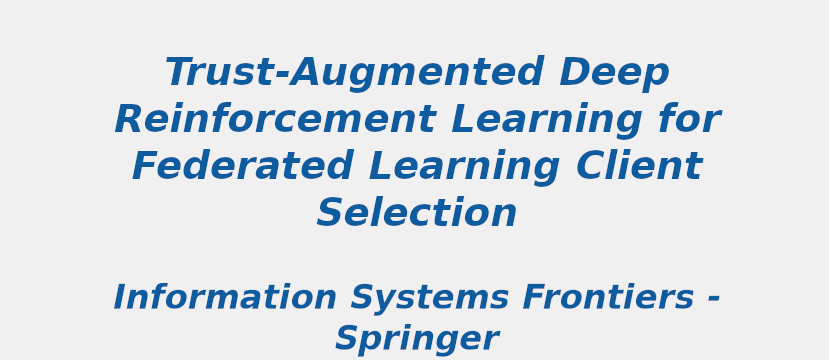Research Area: Machine Learning
In the context of distributed machine learning, the concept of federated learning (FL) has emerged as a solution to the privacy concerns that users have about sharing their own data with a third-party server. FL allows a group of users (often referred to as clients) to locally train a single machine learning model on their devices without sharing their raw data. One of the main challenges in FL is how to select the most appropriate clients to participate in the training of a certain task. In this paper, we address this challenge and propose a trust-based deep reinforcement learning approach to select the most adequate clients in terms of resource consumption and training time. On top of the client selection mechanism, we embed a transfer learning approach to handle the scarcity of data in some regions and compensate potential lack of learning at some servers. We apply our solution in the healthcare domain in a COVID-19 detection scenario over IoT devices. In the considered scenario, edge servers collaborate with IoT devices to train a COVID-19 detection model using FL without having to share any raw confidential data. Experiments conducted on a real-world COVID-19 dataset reveal that our solution achieves a good trade-off between detection accuracy and model execution time compared to existing approaches.
Keywords:
Federated learning
Deep reinforcement learning
Transfer learning
Internet of things (IoT)
Edge computing
COVID-19 detection
Author(s) Name: Gaith Rjoub, Omar Abdel Wahab, Jamal Bentahar
Journal name: Information Systems Frontiers
Conferrence name:
Publisher name: Springer
DOI: 10.1007/s10796-022-10307-z
Volume Information:
